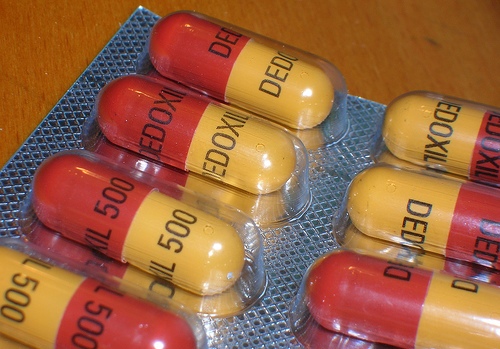
Usage Of Antibiotics
Antibiotics are medications used to treat bacterial infections. Penicillin was the first antibiotic discovered from mold. Antibiotics can be named generically (by the chemical composition) or by brand name (by the drug manufacturer). Antibiotics are specific to infections and all antibiotics cannot treat all infections. Cost of the antibiotic, side effects, and dosing must be considered when prescribing antibiotics. Antibiotics must be used sparingly because if you take it when you did not really need it for your condition, you can develop antibiotic resistance causing serious infection.
- Important notification about information and brand names used in this slideshow!
- Photo courtesy of Rob Brewer by Flickr : http://www.flickr.com/photos/rbrwr/117311111/
- www.nhs.uk/NHSEngland/ARC/Pages/Keyfacts.aspx
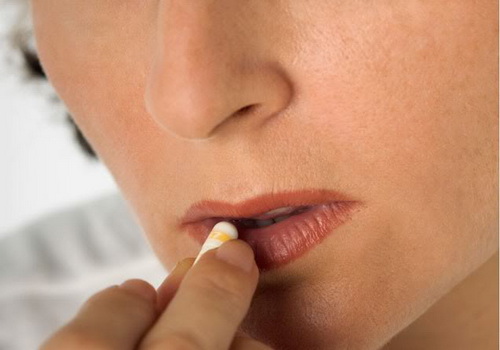
How Are Antibiotics Taken (Orally, Intravenous, Topical)
Antibiotics are usually taken orally (by mouth). They can also be administered intravenously or applied directly to the affected area of the body. Taking antibiotics orally is most convenient and it could be in the form of capsules or tablets. Examples of oral antibiotics are penicillin and its derivatives, cepahlosporins, tetracycline, sulfonamides, and quinolones. Intravenous administration of antibiotics is done by injecting the medication directly to reach the bloodstream. It can be delivered continuously for long periods through an intravenous catheter. Examples are cefotetan, doxycycline, clindamycin, etc. Topical antibiotics are used to treat superficial infections on the skin. They are available in the form of creams, lotions, powders, sprays or ointments. Examples of topical antibiotics are neosporin, bacitracin, etc.
- Important notification about information and brand names used in this slideshow!
- Photo courtesy of DrMaguire by Photobucket : media.photobucket.com/user/DrMaguire/media/People/Woman-taking-pill.jpg.html?filters[term]=pill%20taking&filters[primary]=images&sort=1&o=24
- www.nhs.uk/NHSEngland/ARC/Pages/Keyfacts.aspx
- http://www.medicalnewstoday.com/articles/10278.php
- http://www.rightdiagnosis.com/treat/intravenous_antibiotics.htm

Importance Of Right Antibiotic Dosage
Antibiotics must be taken as prescribed by your doctor. It is important that you follow the prescribed dosage instructions for the antibiotic to work effectively. If the antibiotic dosage is ineffective, then the bacteria can develop resistance and continue to grow. Even if your symptoms begin to improve and disappear, you must continue to take the antibiotics for the complete time that it was prescribed. Traces of bacteria may linger even if your symptoms disappear, and this can cause your infection to return and take longer to completely recover from the infection. If you save the leftover antibiotics to use the next time you get an infection, since it is an incomplete dose it cannot kill the bacteria.
- Important notification about information and brand names used in this slideshow!
- Photo courtesy of winnifredxoxo by Flickr : www.flickr.com/photos/61056899@N06/5751301741/
- www.fmgturlock.com/Antibiotic_facts.htm
- http://www.tufts.edu/med/apua/about_issue/when_how.shtml#2
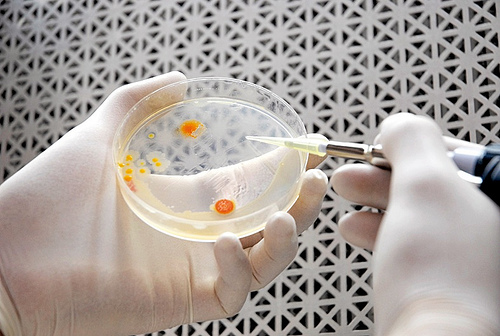
Antibiotics Works On Bacteria, Not On Viruses
Antibiotics are effective in treating bacterial infection but not viral infections. Certain antibiotics can be effectively used to treat a whole host of bacterial infections while others are effective only against certain specific types of bacterial infections. Bacterial infections can cause strep throat, ear infections, sinus infection, and lung infection. Colds, sore throat and cough, and bronchitis are viral infections and antibiotics cannot stop the spread of infection. On the contrary, the patient can develop antibiotic resistance due to overuse of antibiotics. Your doctor will decide if an antibiotic is appropriate for you after examination and laboratory tests. If an antibiotic is prescribed, the dosage must be taken as prescribed for effective treatment. Antibiotics function by destroying the bacterium's reproductive ability by disrupting the cells and cell walls. They can also destroy protein synthesis capability of the cells.
- Important notification about information and brand names used in this slideshow!
- Photo courtesy of Pontificia Universidad Católica de Chile by Flickr : www.flickr.com/photos/universidadcatolica/3468735600/
- www.fmgturlock.com/Antibiotic_facts.htm
- http://www.nhs.uk/NHSEngland/ARC/Pages/Keyfacts.aspx
- http://curiosity.discovery.com/question/antibiotics-immune-to-viruses
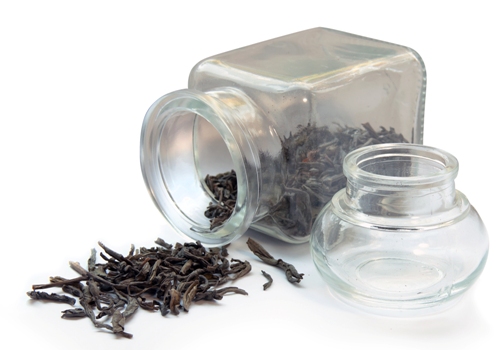
Green Tea Boosts Antibiotics
Researchers from the Alexandria University in Egypt have shown that green tea makes antibiotics up to three times more effective in fighting off superbugs. The effect is profound if green tea is consumed at the same time as taking the antibiotic. Tea leaves have an antibacterial property against many microorganisms. A study conducted by researchers in India showed the synergistic antimicrobial activity of tea and antibiotics against pathogens, specifically with antibiotics such as gentamycin and methicillin.
- Important notification about information and brand names used in this slideshow!
- Photo courtesy of gyvulius by sxc.hu : www.sxc.hu/photo/1352983
- www.emedexpert.com/tips/antibiotics-facts.shtml
- http://www.sciencedaily.com/releases/2008/03/080330200640.htm
- http://www.ncbi.nlm.nih.gov/pubmed/16106094

Scarcity Of New Antibiotic Development
Research aimed at discovering new antibacterial agents has declined in recent years at a time when increasing levels of antibacterial drug resistance is noticed. There is scarcity of medications that can act effectively against bacteria causing infections. The treatment of microbial disease has reached a stage where many infections are untreatable by the available antibiotics. Some of the contributing factors for the decline in research are lack of industry productivity, larger size of clinical trials, increased generic competition and various other pressures on drug pricing, and industry consolidation. Many large biotechnology companies have graciously exited the research arena or drastically curtailed research operation while others have continued research. The present scope of research is insufficient to sustain a robust flow of new agents required to deal with the threat of bacterial drug resistance. Regulatory and legislative action is necessary to deal with this paucity in research.
- Important notification about information and brand names used in this slideshow!
- Photo courtesy of ilco by sxc.hu : www.sxc.hu/photo/1244710
- www.emedexpert.com/tips/antibiotics-facts.shtml
- http://www.ncbi.nlm.nih.gov/pubmed/15522036

Mixing Alcohol And Antibiotics
Alcohol and antibiotics can combine to result in severe reaction if taken together. Drinking even a small amount of alcoholic beverages with antibiotics can cause side effects such as headaches, flushing, nausea, vomiting, and rapid heart rate. Alcohol is not known to decrease the antibiotic's effect on the infection, but it can delay the recovery from infection. Antibiotics such as metronidazole, tinidazole, sulfamethoxazole have the ability to block one of the major pathways of alcohol metabolism resulting in a rapid buildup of acetaldehydes, which cause hangovers. An inflamed liver may result from antibiotics, and consuming alcohol would make it difficult for the liver to metabolize alcohol.
- Important notification about information and brand names used in this slideshow!
- Photo courtesy of HybridSys by sxc.hu : www.sxc.hu/photo/1337577
- theconversation.com/mondays-medical-myth-you-cant-mix-antibiotics-with-alcohol-4407
- http://www.mayoclinic.com/health/antibiotics-and-alcohol/AN01802

Side Effects Of Antibiotics On Newborns And The Immune System
In our body the immune system functions to destroy invading bacteria that cause infections. The majority of the body's immunity is founded in the intestinal tract by the good bacteria that inhabit the tract. In infants, the immune system is important because the body begins to recognize the good and bad bacteria very soon after birth. If an infant gets antibiotics, the immunity is at risk because the antibiotics kill both kinds of bacteria. The bacteria in the gastrointestinal tract are wiped out permanently altering the immune system and its ability to produce the appropriate immune cells. Chronic disease easily sets in when the friendly bacteria are no longer present to protect the body.
- Important notification about information and brand names used in this slideshow!
- Photo courtesy of Andrew Malone by Flickr : www.flickr.com/photos/andrewmalone/2861545028/
- www.emedexpert.com/tips/antibiotics-facts.shtml
- http://northerntruthseeker.blogspot.com/2012/07/important-health-news-how-antibiotics.html

Side Effects Of Antibiotics (Rash, Itching, Vomiting,...)
Antibiotics prescribed to treat different kinds of infection work effectively but can also cause side effects. Some of the common side effects are nausea, diarrhea, abdominal cramps, and stomach pain. Sometimes an antibiotic can cause allergic reactions that present as rash, itching, hives, and swelling of lips. In certain cases the allergic reaction can be very severe causing a medical emergency called anaphylaxis, which can cause swelling of face, lips or tongue, and wheezing necessitating immediate medical attention. Certain antibiotics can destroy the friendly bacteria that are needed by the bacteria.
- Important notification about information and brand names used in this slideshow!
- Photo courtesy of women-hub by Picasa : picasaweb.google.com/lh/view?q=itching&uname=109008901828086469253&psc=G&filter=1#5857121483377574546
- www.fmgturlock.com/Antibiotic_facts.htm
- http://www.emedicinehealth.com/antibiotics/page4_em.htm
- http://www.drugs.com/article/antibiotic-sideeffects-allergies-reactions.html

Consult Your Doctor And Use Full Dosage
It is important the doctor advises you to take the full dose of antibiotics even if your symptoms are much better and you are on the road to recovery. If the dosage is insufficient, there are chances that the the treatment is ineffective and exposing the patient to antibiotic resistance. When the dosage is stopped earlier, the weakest bacteria are destroyed first. The stronger bacteria change their structure so that further antibiotics cannot destroy their ability to reproduce. This can result in antibiotic resistance in the patient.
- Important notification about information and brand names used in this slideshow!
- Photo courtesy of lusi by sxc.hu : www.sxc.hu/photo/1157469
- www.nhs.uk/NHSEngland/ARC/Pages/Keyfacts.aspx
- http://www.fmgturlock.com/Antibiotic_facts.htm
- http://www.emedexpert.com/tips/antibiotics-facts.shtml




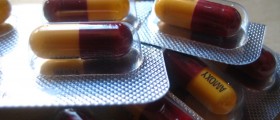

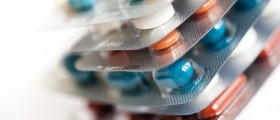
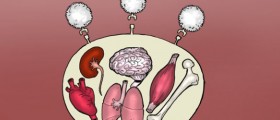



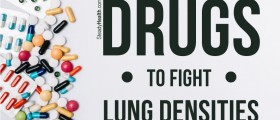


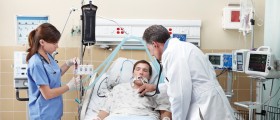
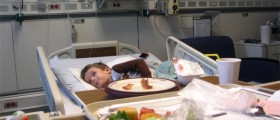
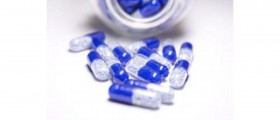

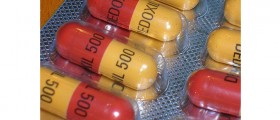
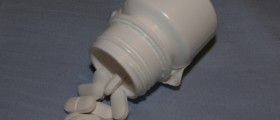



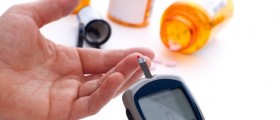


Your thoughts on this
Loading...